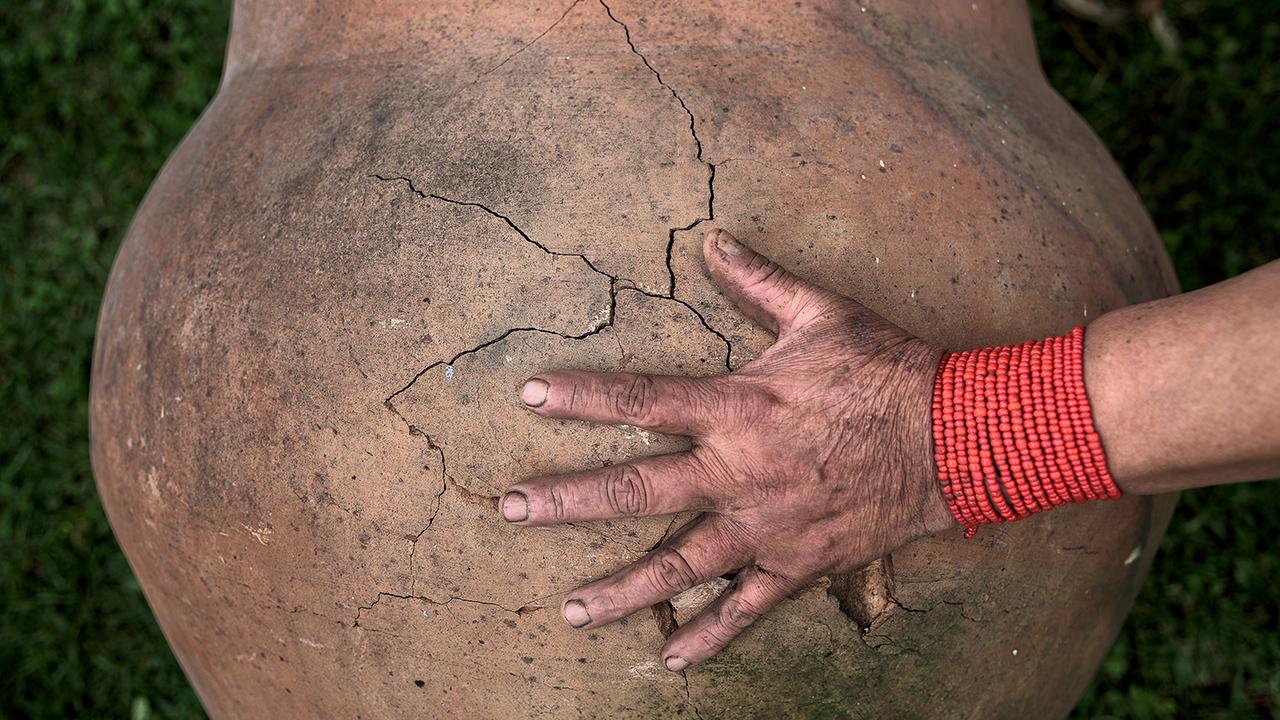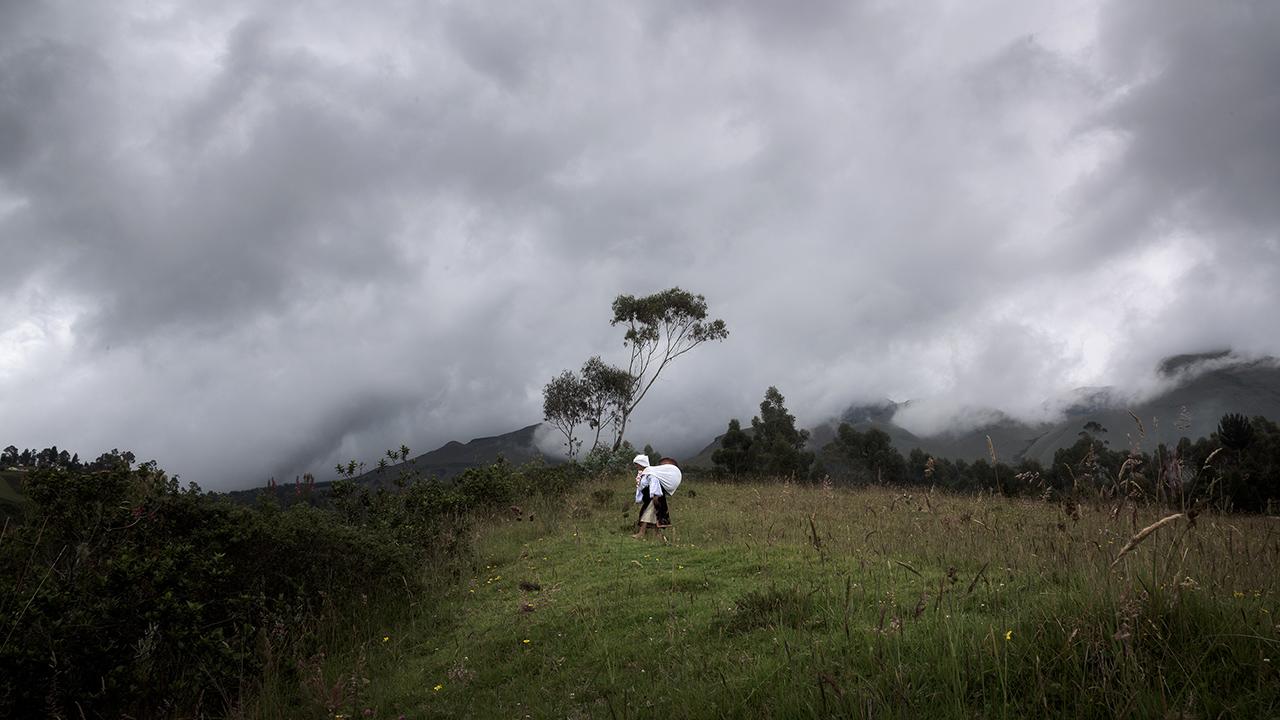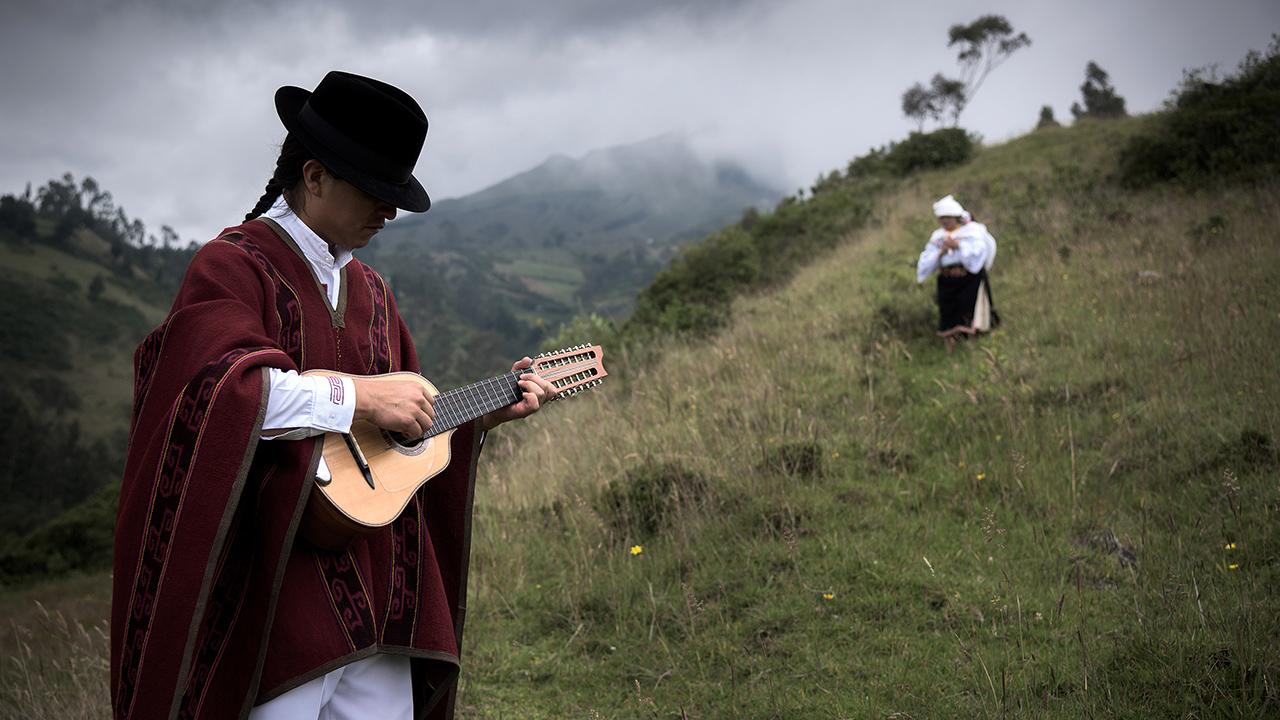Public Story
Taki (2018)
The story proposed in this sequence of images is a representation of the legacy transmission of knowledge of the Kichwa Karanki people of Ecuador. This visual reflection is the product of a collaborative work done with Kuyllur Saywa Escola and Raymi Guatemal, both Kichwa Karankis cultural managers.
The narration is not based on any myth, nor does it propose to be read as such. In this, music is presented as the most important component of everything that structures the worldview of this Original Nation. In the Kichwa musical manifestations is possible to evidence the knowledge about this culture’s world and way of living, their resistance and fights that keep this Nation alive.
The elements that make up each image have a dense and deep background. We built the scenes between Saywa, Raymi and myself. They not only have a narrative proposal, but in each one there is an evidence of the relationship that music has with their culture, their knowledge and with the life of the Karanki.
The methodology used was based on the proposals of the visual anthropology and intercultural fields. This project was built between the three, from conversations, dialogues, negotiations, and in interviews and photo-elucidations in their final stage. As well as the time of production, where the collaboration of Saywa, Raymi, his mother Zoila and his son Charik, was fundamental. Saywa played the role of producer, while my person played the role of director of photography and editor. The original story as well as the final editing is co-authorship of the three (Saywa, Raymi and me). Behind each image there’s a field of knowledge to be shared, in every act represented, in every element of clothing, colors and landscapes. This small project has been designed both for the public of the Kichwa communities and nationalities as well as for the general public, as a bridge of intercultural dialogue. In addition, it was nourished by the experience that Saywa Escola has had with its project ‘Kipuku of musical knowledge of the Kichwa Karanki people’ which won the Nuevo Mariano Aguilera 2017 award in the Artistic Pedagogies category.














